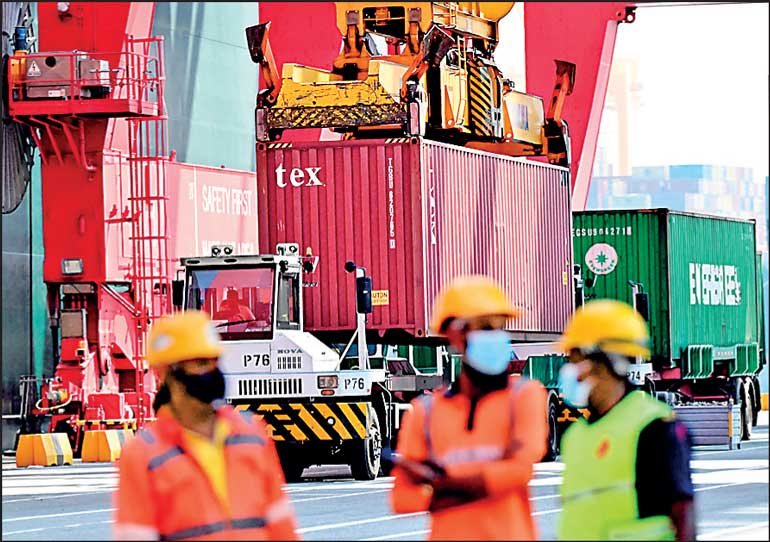Saturday Feb 21, 2026
Saturday Feb 21, 2026
Thursday, 10 March 2022 00:00 - - {{hitsCtrl.values.hits}}

The Government yesterday finally decided to apply brakes on what it described as soaring non-essential imports whilst some of the dependent sectors cried foul as the country scrambled to abide by multiple measures this week to ease the foreign exchange triggered crises.
In a statement the Government Information Department said the restriction of imports “for a short period of time” was in order to ensure proper management of the current economic situation. Accordingly, imports will be restricted under three categories on the recommendations of the Central Bank of Sri Lanka.
It said: “Under the first category, duty would be imposed on certain selected imported items. Under the second category, permits would be made mandatory in importing certain goods. Steps would be taken to impose duty as well as requirement of permits in importing certain goods under the third category.”
“The economists have emphasised that the strategies of import restriction would help create better financial stability while properly managing the prevailing economic situation in the country,” the Government said.
The statement follows the Government gazetting nearly 400 goods under import control either by way of licencing for the first time in history or slapping additional duty.
The Extraordinary Gazette issued by the Finance Minister Basil Rajapaksa limited the import of 367 non-essential goods.
These import restricted items ranging from food items including fish, dairy products, fruits, cosmetics, electronics, computer accessories, watches, household appliances, furniture, sanitary ware, toys, wines and spirits.
The regulations prescribed in the communiqué are only applicable to the importation of goods, which have the date of Bill of Lading/Airway Bill on or after 10 March.
License to import the specified non-essential items will be issued subject to the recommendation of the Secretary to the Finance Ministry.
Importers who wish to import the specified goods are thereby required to be in possession of a valid license issued by the Controller-General of Imports and Exports Control, prior to the date of the Bill of Lading/Airway Bill of such importation.
The Central Bank had recommended curbs on non-essential imports a few months ago after 2021 saw the country spending a hefty $ 21 billion on foreign goods. It took three months for the Finance Ministry to come to terms with reality.
However, the across the board restrictions raised concerns among sectors such as tourism which rely on imported goods to serve the rising arrivals. “We will have to stop operating hotels soon,” quipped one hotelier after seeing the list of products. Tourism is seeing a resurgence with 2022 year to date arrivals at over 200,000 surpassing the number achieved in entirety of 2021.
Nevertheless, several domestic industries hailed the move saying scarce foreign reserves are spent on unnecessary imports ignoring local supplies. But analysts said domestic manufacturers are struggling to cope up with demand forcing consumers to wait longer especially when it comes to building and housing materials.